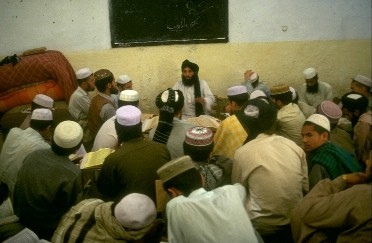Pioneering therapy for ex-jihadists
I hope...

Tomorrow a young man in traditional white robe and headdress will walk out through the iron gates of an anonymous low-rise compound down a gravel lane behind a Lebanese restaurant, 30 minutes’ drive from the Saudi Arabian capital of Riyadh…
The compound is the latest weapon of the Saudi Arabian government in the ‘war on terror‘, a rehabilitation centre where young men spend months being ‘deradicalised’. The two al-Ghatanis will leave behind another 12 or so inmates - or ’students’ as the psychologists, sociologists and clerics working with them prefer - who also travelled, or tried to travel, to Iraq. Under treatment are another dozen men who have recently been repatriated from Guantánamo Bay. No one will leave the centre until they are deemed no further threat to society…
Al-Hadlaq has charted the lives of nearly 700 militants to help construct the programme. In common with other surveys of Islamic radicals, the Saudi research has revealed a very low level of religious knowledge, so lectures in jail concentrate on key theological areas - the Islamic theory of jihad, takfir, or excommunication, and relations with non-Muslims. On their release, the ex-prisoners are sent to the new rehabilitation centre - seven others are planned as well as a series of purpose-built prisons with capacity for 6,400 militants - where they undergo further religious instruction, psychological counselling, do team sports and even art therapy…
The programme, which is just over a year old, is part of a wide range of such strategies in countries as diverse as Indonesia and Iraq, Egypt and Yemen. The UK and other Western nations are watching with interest. Though few such initiatives are on the scale or have the resources of the multi-million-pound Saudi effort, all are part of a new approach by governments and intelligence agencies to extremist violence. After focusing first on al-Qaeda ‘the organisation’, then on al-Qaeda ‘the ideology’, they are now attempting to identify the factors drawing someone into extremist violence.
Interesting article with many potential avenues. I’m familiar with similar programs that have a decent track record with drug addicts - Ayurvedic and Buddhist - in India and China.
In a closed system, in cultures quite different from that portion of Western society still holding liberty a standard, the monastic approach may be useful.
So, who writes the curriculum? Anyone regulating what’s taught at the madrasah down the street that supports al-Qaeda?
Posted: Sun - March 9, 2008 at 01:26 PM